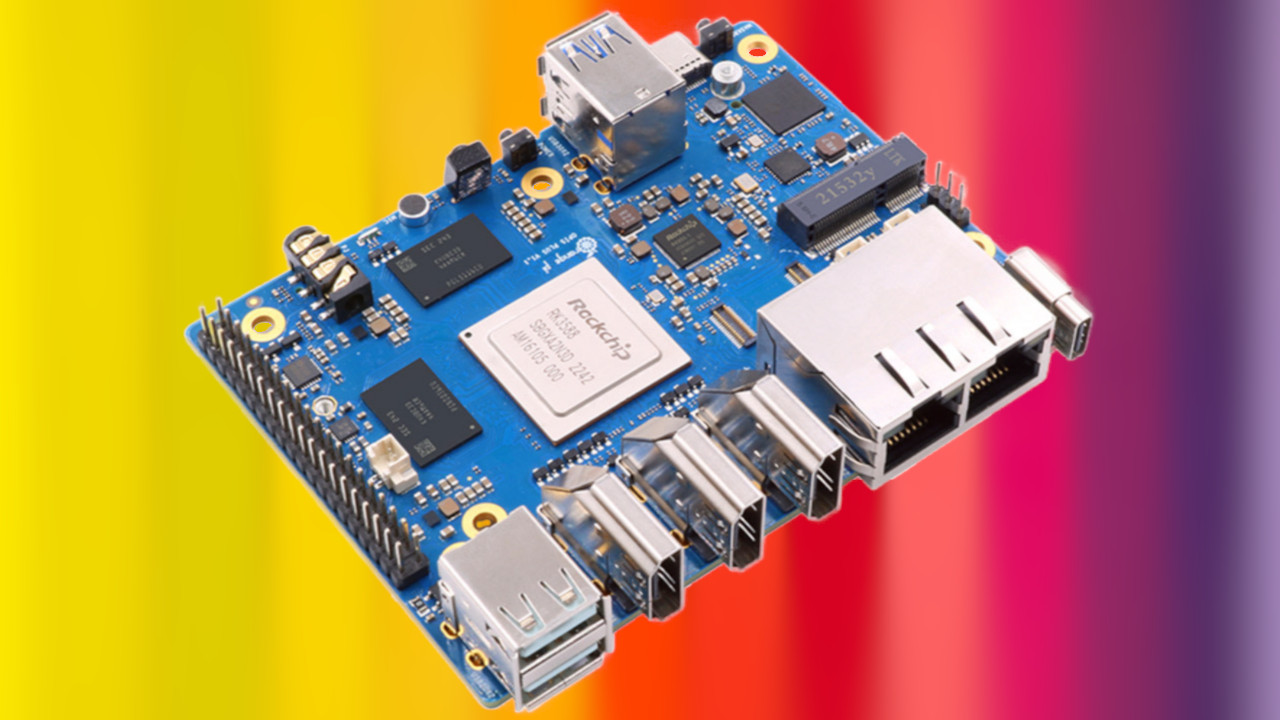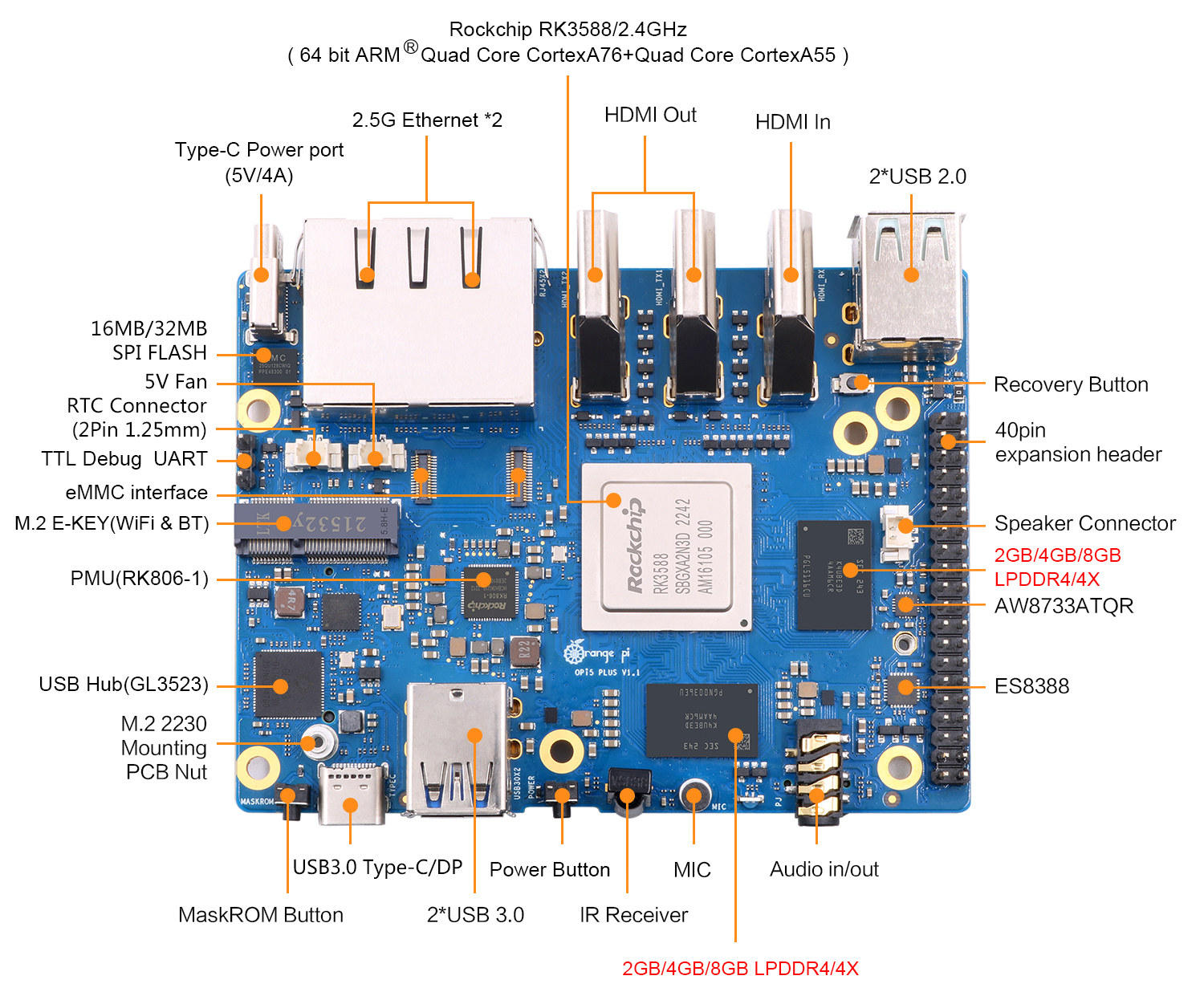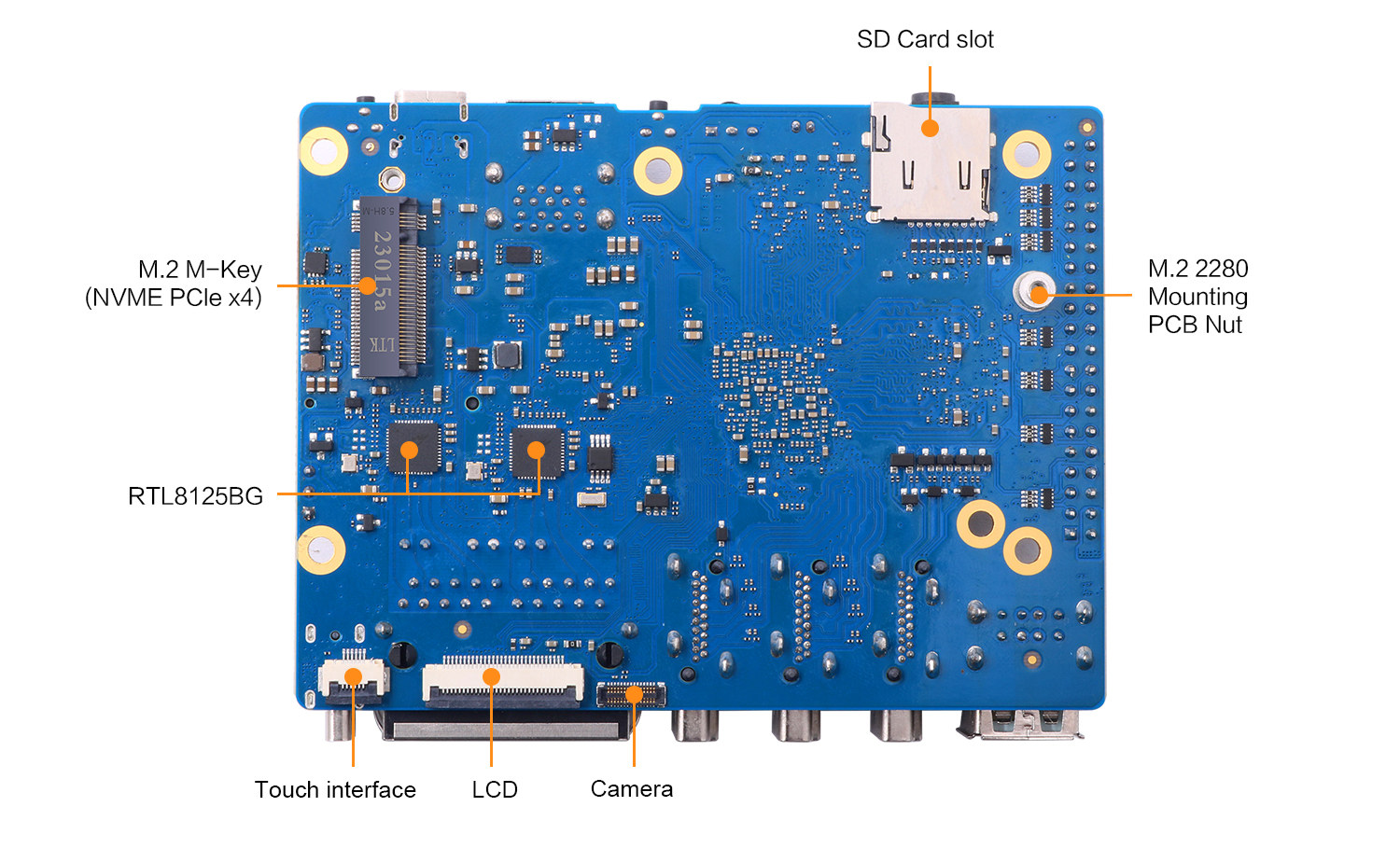
It seems that for its latest board, OrangePi 5 Plus, the Orange Pi team are moving to the RK3588 SoC as the heart of the board. As spotted by CNX Software, this new board boasts a beefier SoC that features many more IO pins than the cheaper RK3588S. The Orange Pi 5 Plus delivers a few more features, including multiple RAM options, and NVMe storage.
The most noticeable additions are two 2.5Gb Ethernet ports (putting the Orange Pi 5 Plus in overpowered DIY router territory) and three HDMI ports. Two of the HDMI 2.1 ports support 8K60 output, while the third HDMI port is an input, able to capture up to 4K60 (a similar premise to the Khadas VIM4). The dual HDMI 2.1 ports means that we can connect a couple of 4K screens and enjoy an expansive work environment. As for networking, if the two 2.5Gb Ethernet ports aren't to your liking, then Wi-Fi is an optional extra. It's a shame that it wasn't included as that would have been the icing on the cake, but costs have to be cut in order to squeeze in an RK3588 over the lower-cost RK3588S.


Under the hood, we have multiple RAM options, from 4 to 16GB of LPDDR4. This matches the latter tiers of Raspberry Pi 4, and exceeds it with the 16GB model (unless you have the guts and soldering iron to hack your own?). The octa-core CPU is made up of four Arm Cortex-A76 cores at up to 2.4 GHz and four Arm Cortex-A55 cores at up to 1.8 GHz. This gives the Orange Pi 5 Plus more power than the Raspberry Pi 4, and for around the same (artificially inflated) price.
A 40-pin GPIO is present on the short edge of the board, and right now we do not know what the pinout will be. In the past, many Raspberry Pi alternatives have used the 40-pin layout, but none have successfully managed to work correctly with the best Raspberry Pi HATs. Sometimes it is down to software support, other times hardware.
Onboard storage has seen the removal of eMMC flash, although this can be purchased separately. Instead, we have space for an NVMe 2280 SSD drive (the Orange Pi 5 has a 2242 slot) with speeds of up to 2,000 MB/s. The rather average speed means that most of the best SSDs will be more than up for the task. If you don't need the speed, then a micro SD card can be used to boot your choice of OS.
Operating system support boils down to Orange Pi OS, Ubuntu, Debian and Android 12.
Prices start from $89 for the 4GB model, $109 for 8GB and $129 for 16GB and according to CNX Software the boards will be on sale next week, May 15 onwards.







